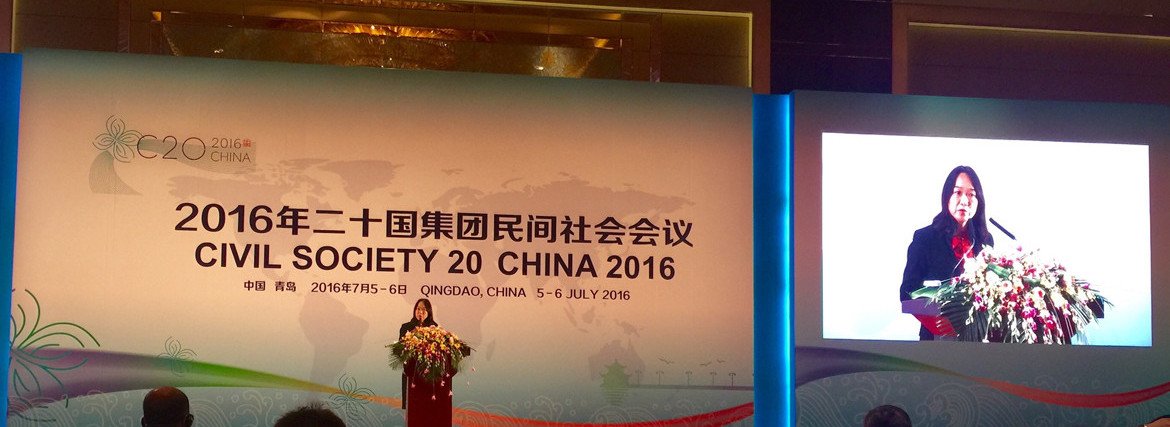At the Civil Society 20 (C20), Oxfam Hong Kong (OHK) called upon G20 leaders to demonstrate their commitment to the Sustainable Development Goals (SDGs) and reducing extreme inequality.
As a formal engagement group of the G20 Summit, the C20 was held in Qingdao on 5 and 6 July under the theme ‘Poverty Eradication, Green Development and Innovation: Role of Civil Society’. Mr. Yang Jiechi, State Councillor, gave the welcoming address at the Opening Ceremony and read out President Xi Jinping’s message for the C20.
About 200 representatives from more than 50 countries and regions, including G20 member countries Africa and Asia, attended the C20. The event ended with the announcement of the ‘Communiqué of C20 China 2016’ which will be submitted to the G20 leaders.
At the plenary session, Dr. Trini Leung, OHK’s Director General, said: ‘G20 countries should take action to redistribute money and power in ways that support the SDGs and foster social stability, and should support the establishment of a fair, progressive, and redistributive international tax system.’ She also urged the G20 countries to advance gender equality, tackle climate change and promote transparency and accountability among multi-lateral development banks.
Speaking at the Closing Ceremony, Dr. Bhokin Bhalakula, former Deputy Premier of Thailand, echoed Oxfam’s concerns about inequality and urged the G20 governments to reform tax systems.
Since 2015 OHK has been working with partners to engage with the G20 such as China Association for NGO Cooperation, Global Environmental Institute, Greenovation Hub, International Institute for Sustainable Development, Natural Resources Defense Council, Participation Centre, Save the Children, Social Resources Institute and World Wide Fund for Nature. We jointly organised learning workshops and exchange visits, and developed policy recommendations, parts of which were adopted in the Communiqué.

